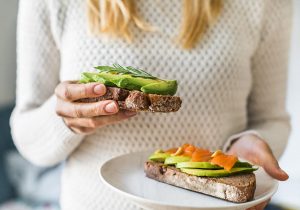
Dissecting the different dietary fats
In recent years, the types of fats in your diet is a hotly contested issue. Some say they’re good for your body, while others think they’re bad for your health. So, what’s the skinny on dietary fats? When it comes to your diet, fats have a bad reputation. While protein gets plenty of praise and carbs are craved by everyone, fats are often feared because they’re thought to make you look that way. However, the bad name they’ve earned over time isn’t always deserved. Healthy fats can do a lot of good for your body and are even necessary, while unhealthy fats are bad for everything from your heart to your health. Let’s take a closer look at the different types of fats and which can help or harm your health.
The fats of life
Fats are an essential part of a healthy diet, but not all fats are created equal. There are four types of fats that are divided into the good, the bad, and the ugly. The good ones are the unsaturated fats known as monounsaturated fats and polyunsaturated fats. The bad guys are saturated fats, while trans fats are downright ugly. The two types of unsaturated fats, monounsaturated and polyunsaturated, are the ones that your SignatureMD-affiliated doctor may recommend you eat more often. That’s because they’re good for everything from giving you energy and supporting your cells to providing a satisfying sense of fullness, cushioning your organs, and helping your body fully absorb the nutrients from food. On the other hand, saturated fats and trans fats are the ones you want to avoid because they’re good for nothing but raising your cholesterol level, as well as your risk for chronic diseases.
1. Monounsaturated fats are the best
Monounsaturated fats are one of the healthiest types of fats you can eat. These unsaturated fats can help lower your level of the bad kind of cholesterol called LDL cholesterol, which can decrease your risk of heart disease and stroke. These fats can also help maintain your cells and add vitamin E to your diet. Monounsaturated fats are found in several plant-based foods and the best sources include:
- Olive oil
- Canola oil
- Peanut oil
- Avocados
- Nuts like cashews, almonds, macadamia nuts, and pecans
- Seeds, such as sesame, sunflower, and pumpkin seeds
2. Polyunsaturated fats do your heart good
Another fat you’re free to eat are polyunsaturated fats. As with monounsaturated fats, these unsaturated fats can help lower your bad LDL cholesterol level to reduce your risk of chronic conditions like heart disease and stroke. At the same time, these fats contribute heart-healthy omega-3 fatty acids to your diet. Foods full of polyunsaturated fats include:
- Fatty fish, such as salmon, sardines, and herring
- Nuts like walnuts, Brazil nuts, and pine nuts
- Flax seeds and flax seed oil
- Chia seeds
- Soybean oil
- Safflower oil
3. Saturated fats are grease gone bad
Saturated fats are bad news for your cholesterol and your heart because they can raise your LDL cholesterol level, which puts you at a greater risk of heart disease and stroke. In fact, the American Heart Association (AHA) recommends consuming no more than around 5% of your daily calories from saturated fat. You’ll find these fats in fatty cuts of meat and full-fat dairy products, along with tropical oils and processed foods, including:
- Fatty meats like regular ground beef, lamb, and sausage
- Lard
- Butter
- Tropical oils like palm oil and coconut oil
- Processed meats, such as bacon and hot dogs
- Full-fat dairy like cream, ice cream, whole milk, and cheese
- Gravy made from meat drippings
- Baked goods, including cookies, cakes, desserts, and crackers
- Fried foods
4. Trans fats are a big fat mistake
Trans fats are the unhealthy fats formed when liquid oils are hardened into solid fat through a method called hydrogenation. This process makes trans fats useful for extending the shelf life of processed foods and for frying in fast food restaurants, but it makes them bad for your health because they raise your LDL cholesterol levels while lowering your good HDL cholesterol. They can also clog your arteries and increase your risk of heart attack, type 2 diabetes, and stroke. In recent years, the FDA cracked down on these hydrogenated fats, but they’re still lurking in many store-bought foods and fast foods. To avoid trans fats, read nutrition labels and look for hydrogenated oil or partially hydrogenated oil on the ingredient list, then eat as few of those foods as possible. Common sources of fats like trans fats include:
- Store-bought baked goods, such as cakes, cookies, and muffins
- Processed snacks like chips and crackers
- Margarine
- Shortening
- Fast food items like fries
Now that you understand the different types of fats and how they affect your health, you should go for the good sources of fats and cut out bad fats for good.